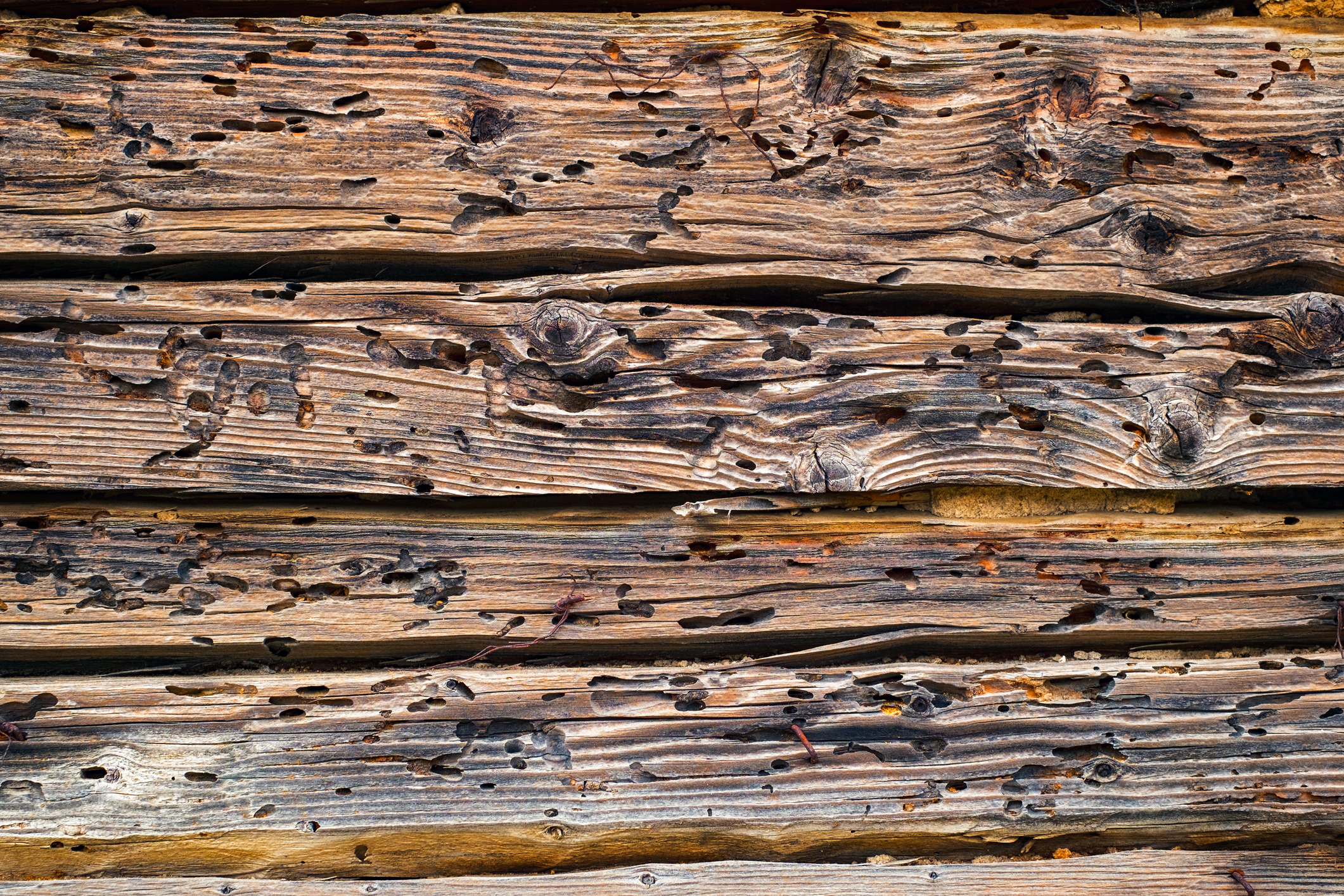Termites may be small, but they are a serious threat to home and business owners. Individually, these tiny insects can only do so much damage, but in a colony they’re formidable. A termite colony at its peak can chew through a foot of 2×4 wood in 6 months!
If left unchecked, termites can cause extensive damage that’s difficult and expensive to repair. In this article, we’ll outline what types of termites you might see in your home, how to identify a termite infestation, how to eliminate them, and how to prevent them from returning.
What are the Types of Termites?
There are three types of termites you’re likely to encounter if you discover an infestation in your home or business.
The first is subterranean termites. They live in colonies underground and wood is their main food source. Colonies can tunnel up to 150 underground and chew through 15 pounds of wood per week. These termites cause 95% of all termite damage in North America.
You might also face an infestation of dampwood termites. As the name implies, these termites build colonies in damp, decaying wood so if your home has moisture problems these termites may be an issue for you.
Lastly, drywood termites live above ground and make their nests inside wood and trees. They thrive in humidity and eat wood from the inside out. Wood that’s infested with these types of termites can seem fine but is crumbling within.
How to Identify a Termite Infestation
As time passes, some wear and tear on your home or business is expected. Termite damage is different. Often mistaken for water damage, signs of a termite infestation can look like:
- Buckling wood
- Swollen floors and ceilings
- Painted walls that bubble and peel
- Wood that sounds hollow when you knock
- Mud tubes on the exterior of a foundation
- Discarded wings near doorframes and windows
Termites can also emit a smell similar to mold or mildew. This isn’t surprising as termites thrive in high-moisture environments just like mold and mildew. If you notice any of these tell-tale signs, it’s time to act.
How to Eliminate Termites
The best way to eliminate termites is to call a trusted professional. You may be tempted to DIY your problem but you risk missing the scope of the problem and allowing damage to continue. When you call Bug Man, we’ll provide you with a 100% free inspection and a quote. We use a proven combination of bait traps and liquid barriers so you can rest easy that your home is truly termite free.
To kill the existing termite colonies, exterminators install bait stations filled with insecticide around the perimeter of your home. Termites enter the bait station and spread the insecticide throughout the colony, effectively destroying it.
Next, exterminators inject a liquid barrier into ground around your home to kill and prevent termites from entering your living space. At Bug Man you can choose from Termidor, the best-known name in termite prevention, or our eco-friendly Bora-Care.
How to Prevent Termites
Following a termite extermination, you can take steps to make your home less hospitable to these destructive insects. First, reduce moisture in and around your home. Crawl spaces and basements are notorious for moisture problems so be sure to asses the air quality in these spaces. If the conditions are humid, consider installing a dehumidifier, vapor barrier or crawl space encapsulation.
Next, inspect your home for soil-to-wood contact. Fence posts, tree branches and wood piles are prime targets for termite colonies. Finally, seal any entry points like cracks in your foundation or around windows and doors. We also recommend a yearly inspection to ensure that your home has remained termite free.
Contact Your Local Termite Exterminator
A termite infestation should not be taken lightly. Depending on the type of termite invading your home the damage could be serious! Bug Man Exterminating has prevented termite infestations for almost 30 years. Our experts know the ins and outs of termite control and will ensure you get the most effective treatment. Contact us today to schedule your free inspection.


